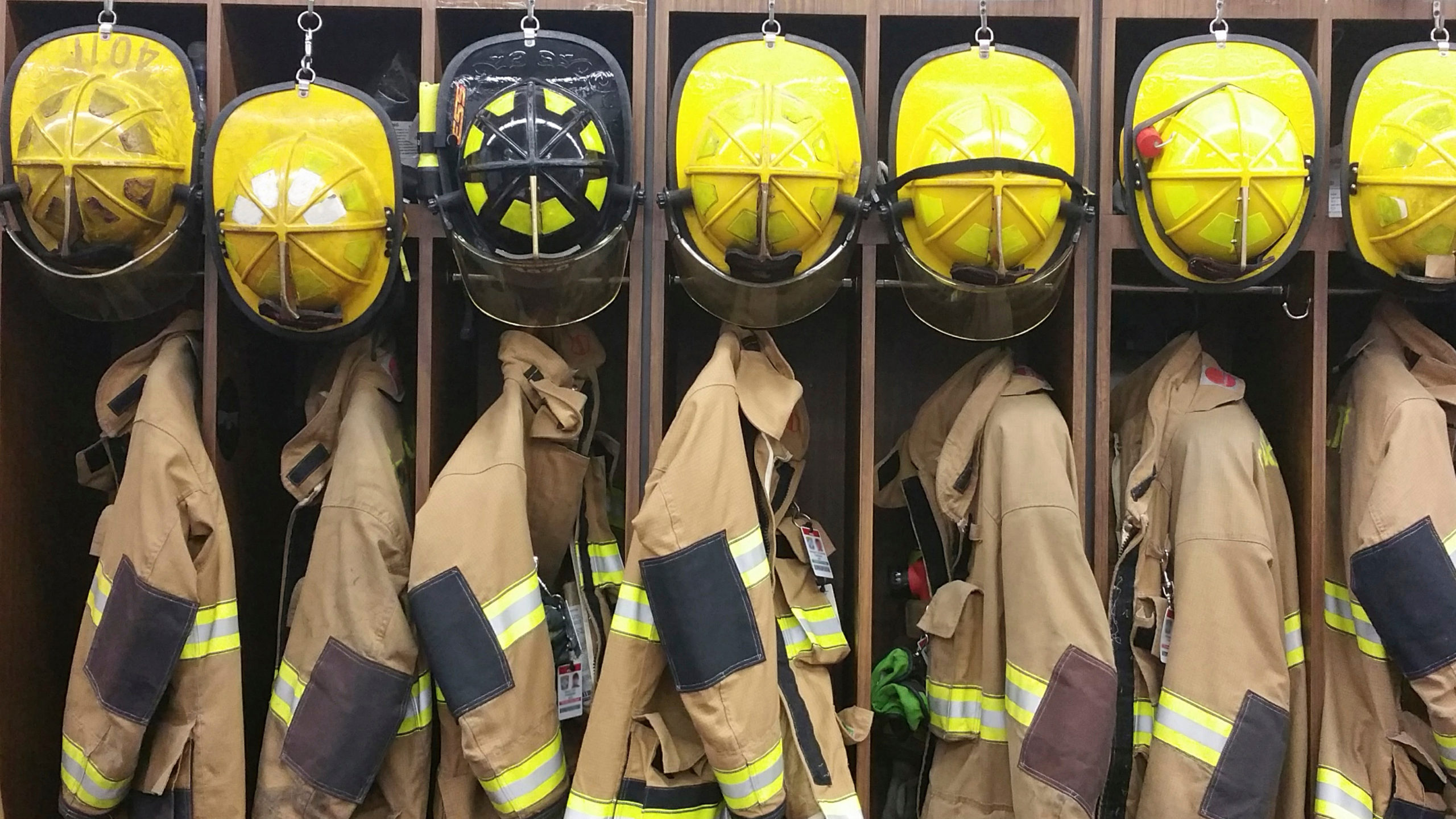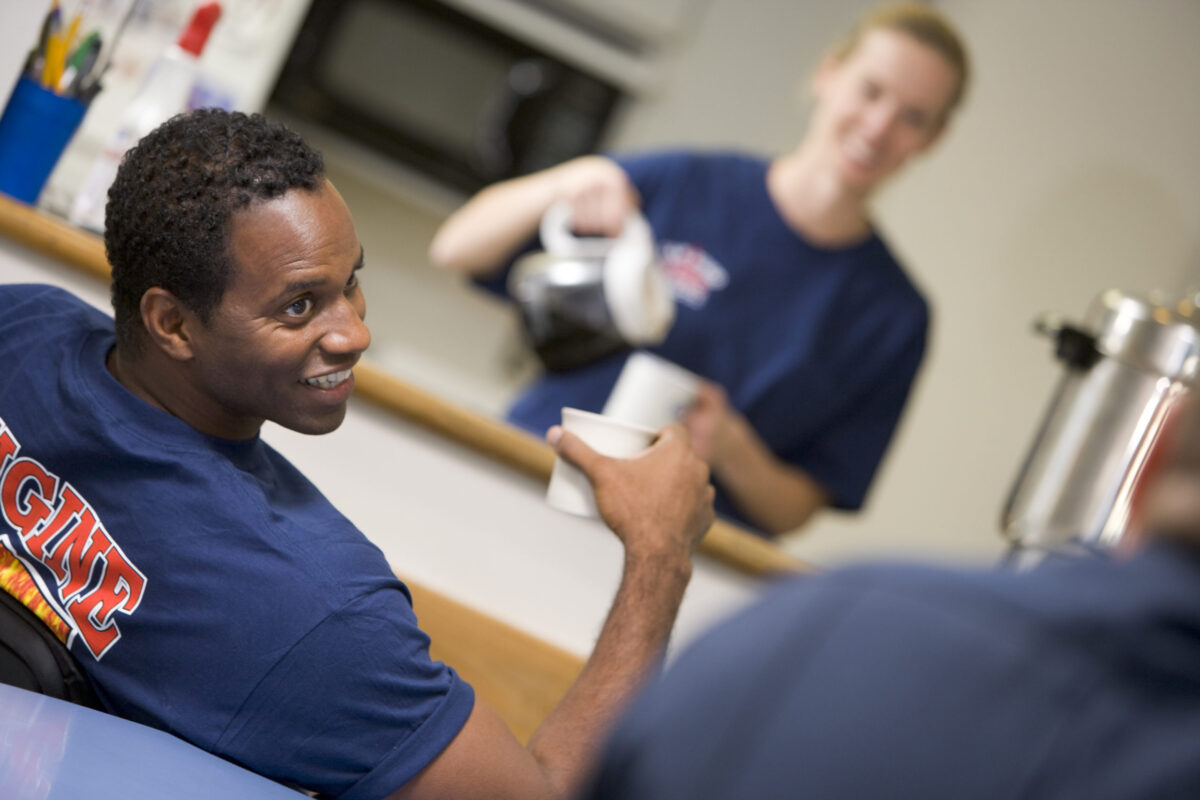
Resiliency Training
The IAFF Resiliency Training is designed for 40 in-person participants or 25 students in the virtual format. Through a combination of self-assessment, didactic instruction, group discussion, and video, participants will gain an essential foundation for personal resiliency on and off the job.
Curriculum
The IAFF Resiliency Training includes two components: pre-course content and classroom content. Pre-course content includes an individual resiliency assessment completed online, followed by a one-hour video series on organizational resiliency. Classroom content will focus on six key concepts to gain resiliency building skills that can be applied both on and off the job.
The IAFF Resiliency Training will teach you to:
- Assess your current level of individual resiliency
- Respond to stress with positive, flexible thinking
- Increase positive social interactions on and off shift
- Experience more positive emotions during your day
- Manage stress through tactical breathing, meditation and mindfulness
- Challenge personal and occupational barriers to good nutrition and exercise
- Build meaning and purpose in your daily life through spirituality
Virtual Resiliency Training
The IAFF Resiliency Training is also available as a two-day fully online training experience, broken into four to five training hours each day.
Led by three IAFF master resiliency instructors, the class is designed for 25 participants. Through a combination of self-assessment, traditional instruction, video, group discussion and skills practice, participants will gain an essential foundation for personal resiliency on and off the job.
The IAFF Virtual Resiliency Training is hosted through Zoom and is designed to be a highly interactive training experience without leaving your home. Students will participate verbally through their webcam, using their chat box and by responding to polls.
Curriculum
The curriculum for the IAFF Virtual Resiliency Training is identical to the in-person training and includes two components: pre-course content and virtual classroom content. Pre-course content includes an individual resiliency assessment completed online during registration, followed by a one-hour video series on organizational resiliency. Virtual classroom content will focus on six key concepts to gain resiliency-building skills that can be applied both on and off the job. Each individual student will be mailed a hardcopy student manual and materials prior to the class.
The IAFF Resiliency Training will teach you to:
- Assess your current level of individual resiliency
- Respond to stressful situations with positive, flexible thinking
- Increase your positive social interaction on and off shift
- Experience more positive emotions during your day
- Manage stress through tactical breathing, meditation and mindfulness
- Challenge personal and occupational barriers to good nutrition and exercise
- Build meaning and purpose in your daily life through spirituality
Pre-Course Content
- Participants are required to complete an individual resiliency assessment through the registration process online, which consists of the two assessment questionnaires listed below. Assessment results are explored in the classroom training:
- The Positive and Negative Affect Scale (PANAS)
- The Connor Davidson Resiliency Scale (CD-RISC)
- Participants are asked to watch a one-hour video series, which provides an overview of classroom training and an introduction to the concept of organizational resiliency. Anyone can view the IAFF Resiliency Training video overview – registration for the in-person class is not required.
Cost of Training
In-Person Training
The cost of the in-person training is $6,750. This fee includes all training materials, completion certificates, instructors’ time, travel and hotel expenses.
If a host would like to hold the one-day training on consecutive days to reach a larger group, discounted pricing is reflected below. Payment is due no later than one month before the training date:
- One class: $6,750 (40 students)
- Two consecutive classes: $11,000 (80 students)
- Three consecutive classes: $13,500 (120 students)
Virtual Training
The cost of the two-day virtual training is $3,625 for 25 students, paid by the host organization.
The IAFF is also working on a delivery model that would allow students to register, pay and attend the training as an individual, not through a host organization. Sign up to be notified of scheduled trainings and pricing.
Become an Instructor

The IAFF Resiliency Training is delivered by master IAFF peer support instructors. You must serve as an IAFF peer support instructor before becoming an IAFF resiliency instructor. Master peer support instructors are appointed by the General President.
The IAFF accepts applications to become a peer support training instructor on a rolling basis, but may not expand its instructor roster every year.